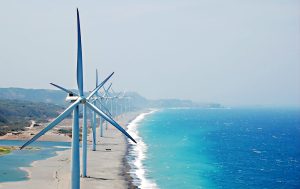The wind power supplier Adani has promised to lower price but the controversy surrounding the wind power project continues.
Lowered Purchase Price: The purchase price of a wind power plant in Mannar, Sri Lanka, constructed by India’s Adani, has been reduced to 8.85 US cents per unit in the latest negotiations, significantly lower than the initial demand of 15.20 US cents per unit.

Controversial Procurement: The private wind power plant procurement has sparked controversy due to its non-competitive bidding nature and the high initial price demanded. Power purchase agreements (PPAs) for such projects, lasting up to 20 years, are substantial government procurements, often termed as ‘geopolitical’ costs.
Government Negotiations: The plant procurement was facilitated through a government-to-government deal, with a cabinet-appointed negotiation committee overseeing price adjustments. The negotiation process aims to ensure a favorable deal compared to other renewable energy projects.
Environmental Concerns: Opposition leaders have raised concerns about the environmental impact of the wind power project, particularly its location along a migratory bird flyway. Questions have been raised regarding the adequacy of the Environmental Impact Assessment (EIA) conducted for the project.

Response from Adani: Adani Group has refuted claims of environmental negligence and asserted that the project’s location was chosen carefully to avoid sensitive habitats. They highlighted the comprehensive EIA conducted, including studies on birds and bats, to mitigate environmental risks.
Project Delays and Pressure: The wind power project has faced delays, partly due to concerns raised by the Cabinet Appointed Negotiation Committee (CANC) over pricing and risk assessment. The project’s strategic importance for energy security has led to pressure from government officials to expedite its implementation, despite bureaucratic hurdles and lingering anti-Indian sentiment







